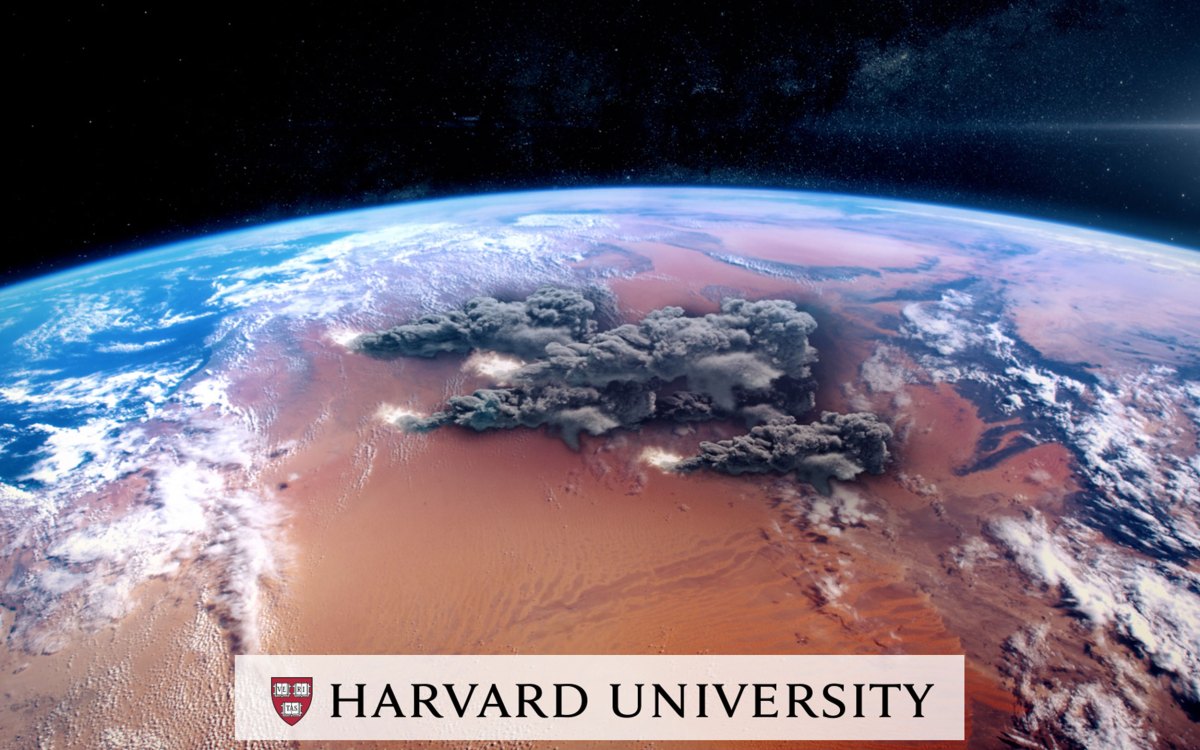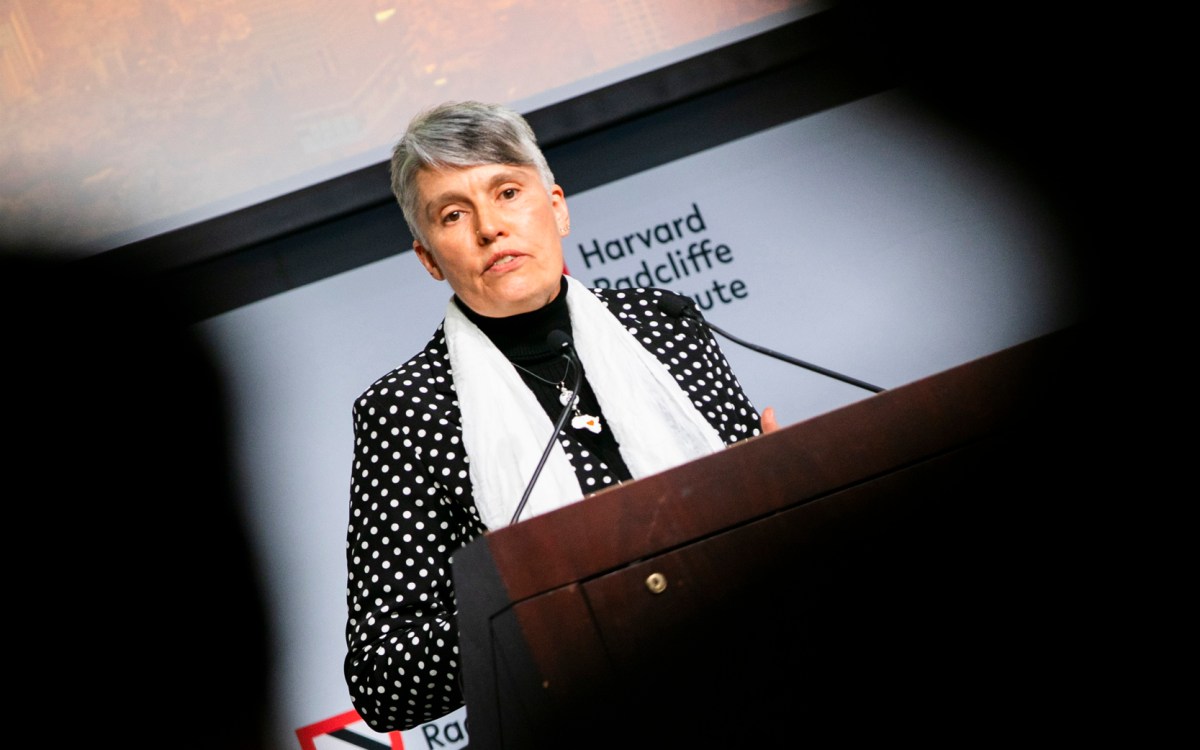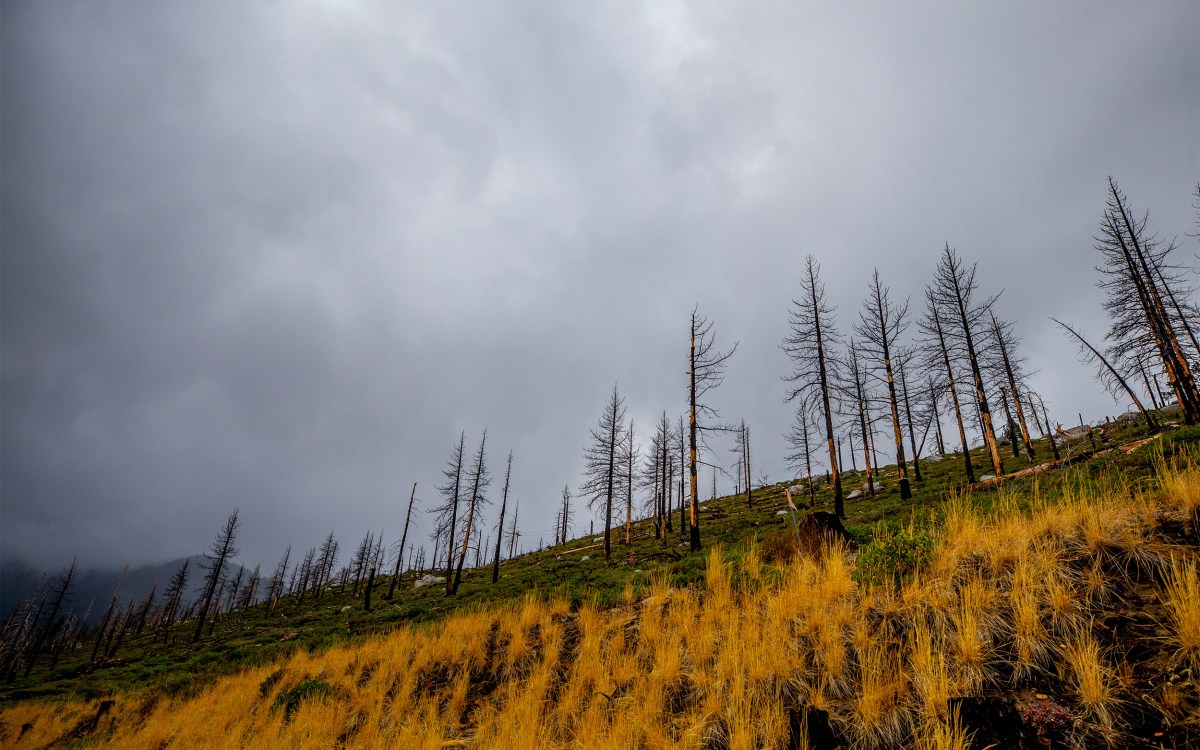A global beacon on climate change
Salata Institute casts off with University-wide, interdisciplinary approach to begin finding real solutions to existential crisis
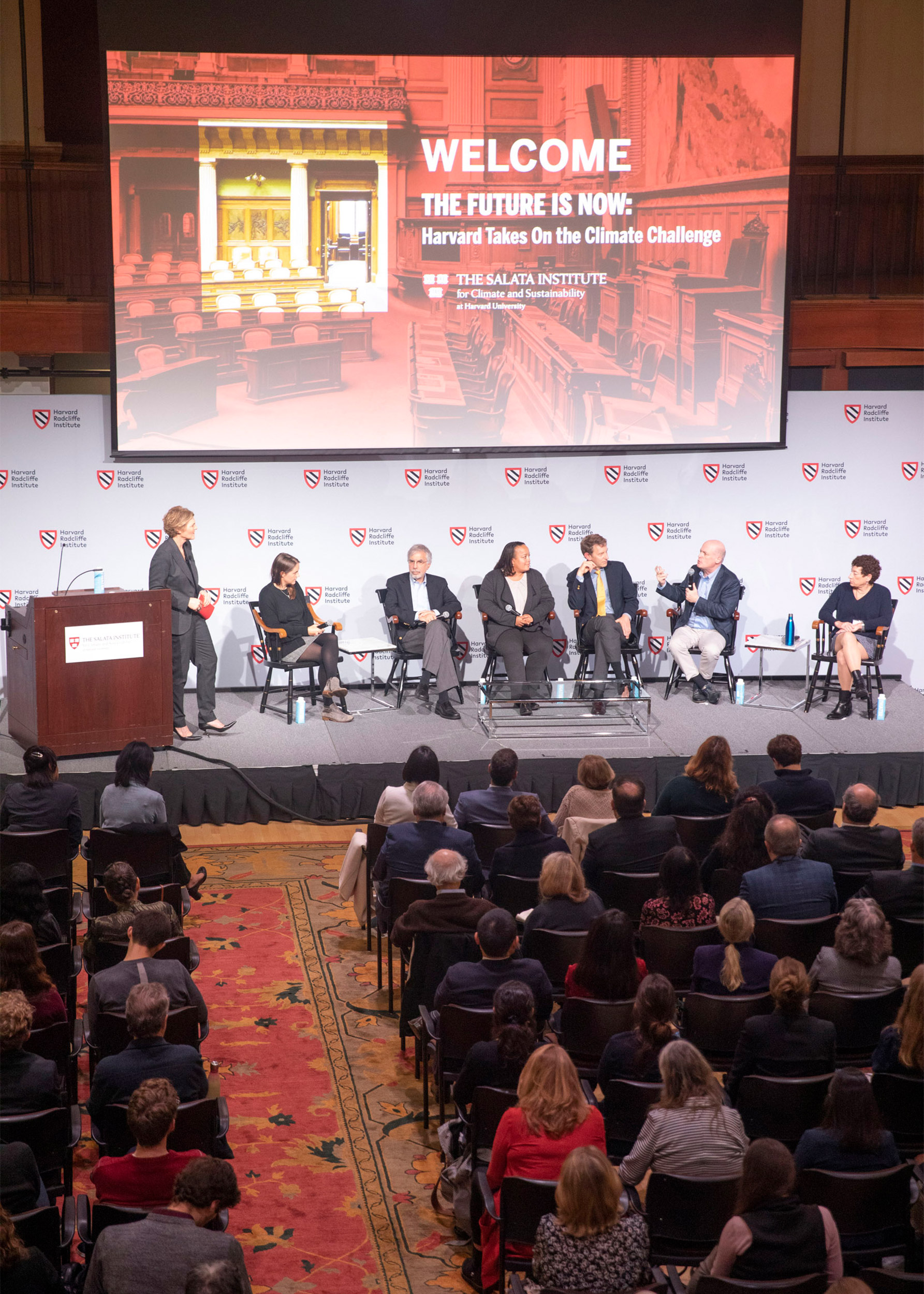
The Salata Institute for Climate and Sustainability’s event, “The Future is Now: Harvard Takes on the Climate Challenge,” included panelists from across the University.
Photos by Kris Snibbe/Harvard Staff Photographer
Jean Salata is a climate optimist, enough to often elicit a gentle eyeroll from his wife, Melanie.
“I am very optimistic — and as I was joking last night — my wife would say that I’m delusional,” Salata said Wednesday.
Despite that optimism, Salata, CEO of one of Asia’s largest private equity firms, Baring Private Equity Asia, isn’t kidding himself about the complexities of the climate crisis. He knows it is a multifaceted, global issue that will affect the world his children and grandchildren inherit. But he decided that his best shot for making a real difference was to find a place with robust resources, deep talent, and the right leaders, and then just step back. And, he said, that is what he did.
“I’m optimistic that we can make a difference,” Salata said at the kickoff event of the new institute that bears his and Melanie’s name. “It’s not going to be easy. We’re not going to do it alone. We can galvanize all the resources that the University has to be a beacon to the rest of the world, almost like a call to action of why this is important and how we together are going to solve this problem.
Several speakers at Wednesday’s event, “The Future is Now: Harvard Takes on the Climate Challenge,” cited Harvard’s broad interdisciplinary breadth and leadership in higher education as reasons why it is imperative the University engage fully on the problem. They said the new Salata Institute for Climate and Sustainability will fill an important role in the array of research, teaching, and other activities related to climate change taking place on Harvard’s campuses. Indeed, a recent report commissioned by James Stock, Vice Provost for Climate and Sustainability, concluded that despite the abundance of climate change-related courses, events, research opportunities, internships, and other types of engagement already offered at the University there remains a huge desire for more.
The Salata Institute, which Stock will head, seeks to play a unifying, catalyzing role that ultimately brings a University-wide focus to a massive, complex, and existential dilemma that has at times driven researchers, scholars, and students nearly to the point of throwing up their hands in resignation.
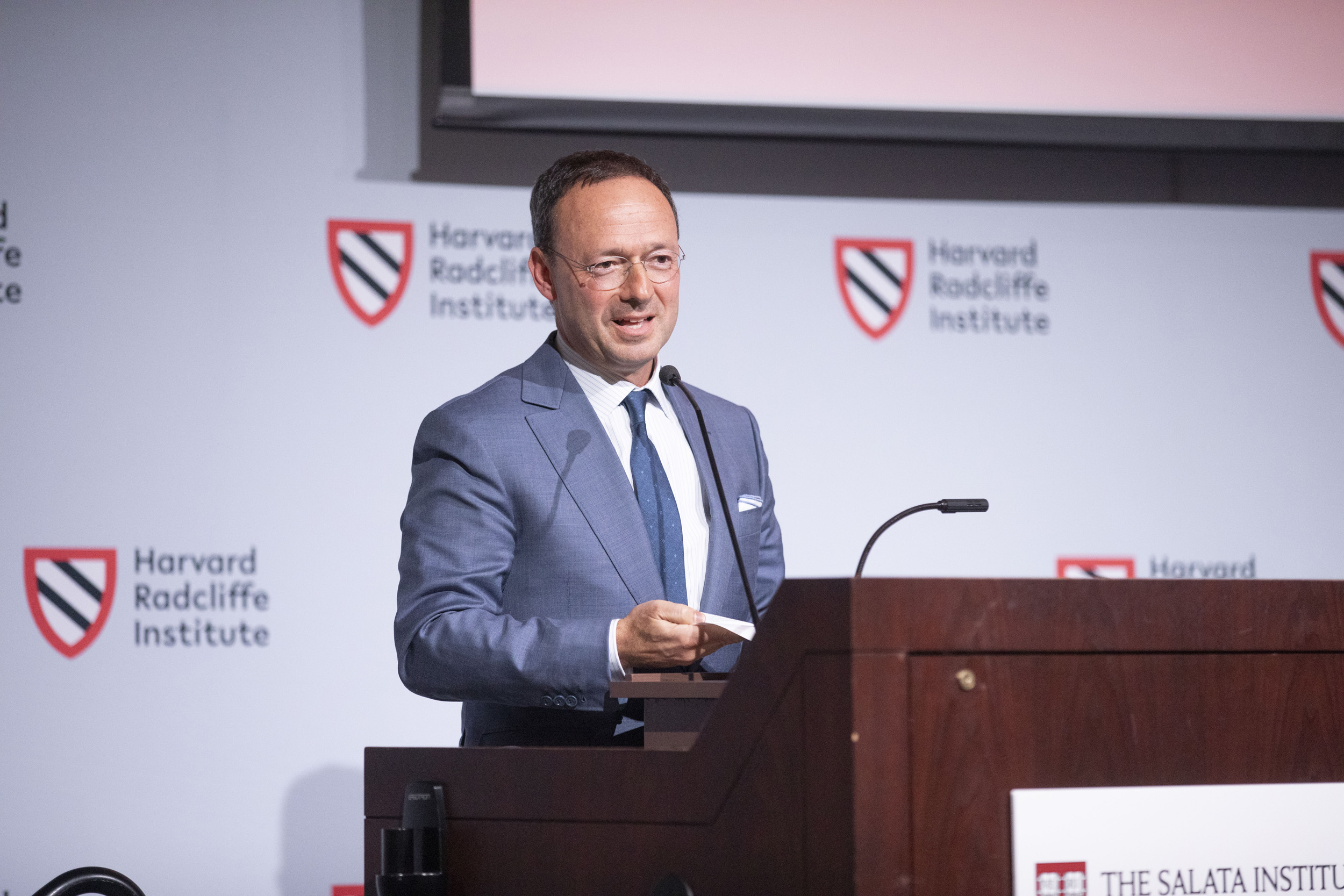
Even that distress, however, points to the importance of an all-encompassing approach, according to Daniel Schrag, the Sturgis Hooper Professor of Geology and director of the Harvard University Center for the Environment. During a panel discussion on Wednesday afternoon at Radcliffe’s Knafel Center, Schrag recounted a discussion with Matthew Potts, Plummer Professor of Christian Morals, about his freshman seminar, “Apocalyptic Grief: Love, Loss, and the End of the World,” and the importance of dealing not just with facts and policy but also with hope, despair, and other emotions in the face of war, pandemic, the climate crisis, and problems that at times seem ready to overwhelm us.
Schrag said that often during discussions of the geologic timescale of the changes we are making — it can take 100,000 years for carbon we’re putting in the atmosphere to be removed by natural processes — students nearly despair over the possibility of finding a solution. And, though every day we delay makes the problem worse, it is also true, he said, that it’s never going to be too late.
“It’s never too late for us to act on climate system. There’s no threshold beyond which we shouldn’t act. We have an obligation to keep working to solve this problem, whatever the impacts are,” Schrag said. “We have an obligation to continue to work on the social justice issues associated with this problem, whatever impacts happen.”
The panel, moderated by Jody Freeman, Archibald Cox Professor of Law and director of the Energy and Environmental Law Program, also included Caroline Buckee, professor of epidemiology; Bridget Long, dean of the Graduate School of Education; Naomi Oreskes, Henry Charles Lea Professor of the History of Science; Robert Stavins, A.J. Meyer Professor of Energy & Economic Development and director of the Harvard Project on Climate Agreements; and Michael Toffel, the Senator John Heinz Professor of Environmental Management at Harvard Business School.
Panelists described a range of different impacts in their disciplines, as well as activity going on at Harvard in those areas. Long said climate change is an important issue in America’s schools, both as a subject for instruction and a factor affecting learning: A 100-degree heat wave last spring struck while schools — including many without air conditioning — were in session. In addition, she said, schools are an important institution because, while decentralized, they stretch across America, penetrating every community. They are enormous consumers of electricity, cover some 2 million acres of land, and operate approximately 7 million buses, making the choices of education leaders important in enacting solutions.
While interdisciplinarity is important, the event also offered a snapshot of climate science and policy. The good news, Stavins said, is that governments around the world have committed to address the problem, with those representing 97 percent of global admissions signed onto the Paris Accord. The bad news is that their commitments to reduce emissions are nowhere close to what will be needed to keep warming to 1.5 degrees Celsius over preindustrial levels, a threshold below which experts believe the worst effects of climate change can be averted. Efforts, he said, are turning to how to raise those levels of commitment.
Schrag and Oreskes said that the science has moved past the now-settled debate over the problem’s roots in fossil-fuel burning to advances in “attribution science,” which determine how much climate change influences weather events, and in forecasting what shifts to expect.
Though the scientific debate over climate change has been settled for some time, Oreskes said it isn’t over in many parts of the country. Misinformation and disinformation are still a problem, and another significant hurdle is the fact that fossil fuel extraction provides lots of jobs, and, though there are promises of retraining, people holding those jobs only have to look to America’s Rust Belt to see how well they were kept in the past.
“We can have the best science in the world, but if people don’t accept it and act on it, it doesn’t matter,” Oreskes said.
Stock, who offered closing remarks, said the new institute will be operating at a time of transformational change, both in the climate and in society, as energy-source transitions and other climate-related changes accelerate. The transition should be approached, he said, with an eye not just to problems, but also to the opportunities to address inequities in society.
“It’s hard to imagine how vast and consequential the next 30 years will be,” Stock said.



